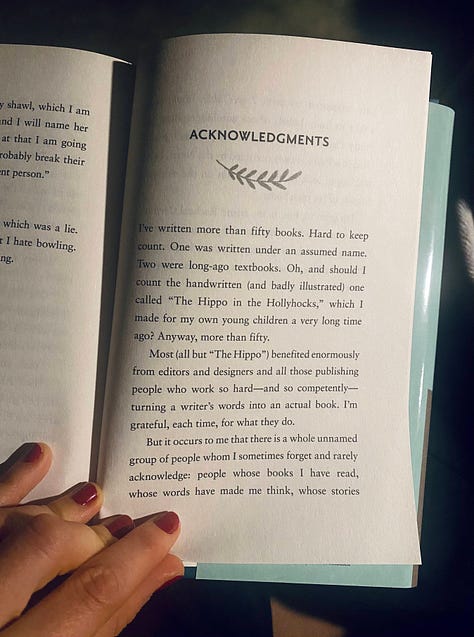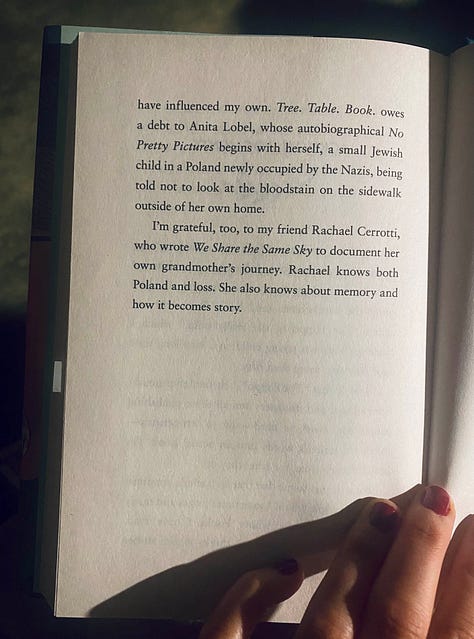For my whole life, my mother has led an organization that she started called FriendshipWorks. In a simple description, it’s a friendship matchmaking service where volunteers meet with elders in the community to help decrease social isolation and loneliness. And while the service is for the elders in need, I would argue that the younger volunteers are impacted as much, if not more, than the recipients themselves. At least that was the case for me.
At my mother’s encouragement, I started visiting nursing homes when I was young—like 8 years old. I don’t think I loved it then, but I also don’t think I resisted. During those visits, I learned how to make friends with strangers, practiced being kind even when I was uncomfortable or thought the smell was weird, and learned about the circle of life. It was an important moment for me when the two women I visited died within the same couple weeks. That memory lingers.
As I got older and into high school, I moved away from volunteering and found other hobbies like photography, the school newspaper, partying, and sports. But regardless of what would become of my teenage distractions, the importance of intergenerational friendship and storytelling was formed as a core memory and a core value in my life. (Thanks Mom).
Another core memory for me was reading The Giver which I wrote about in one of my first Substack essays. The author of that book—the wonderful Lois Lowry—has a new book out about memory called Tree. Table. Book. It is one of those young adult novels that all of us grown up adults should read.



Tree. Table. Book. is the story of a friendship between a young girl named Sophie and her next door neighbor, an older Polish woman, who is also named Sophie. The Sophies love to share stories and drink afternoon tea together. At a certain point though, older Sophie starts to show signs of memory loss and young Sophie tries wholeheartedly to draw memories out of her to show that her mind is still working. She wants to prove that her friend is okay.
Lois gifted me this book earlier this summer knowing both my connection to Poland and my work, which is rooted in retelling the memories of past generations (and particularly my grandmother’s story). But in a wonderfully unexpected way, the book brought me to memories of my grandfathers who I’ve rarely written about.
Listen to Lois Lowry on the Along The Seam podcast
I had three grandfathers. Frederick was my father’s father and I adored him. He was from Italy. He lived in Connecticut and we would celebrate Christmas together, and also Fourth of July. He used to tell me that I could be a pinch hitter for the Red Sox and showed me the richness of picking a tomato from the garden and eating it like an apple. He passed away when I was 10. I wish I had more time with him.
My mother’s father, Ralph, is my biological grandfather. He died when I was much younger. I was 4, I think. We have pictures together, but very few memories. I know from stories that he was strict and loving; he was a German Jewish refugee who escaped to America in 1938. My mom has told me that when she was a kid and didn’t finish her dinner, he would make her eat the leftover food for breakfast. I didn’t know him well enough to know how much I miss him now.
Then there was Bernd. Bernd is the maternal grandfather I grew up with. He was also German but survived the war by fleeing to Denmark. He was a lawyer and after the Holocaust was over, he helped Jews get their property back. Some of his stuff is in my grandmother’s archive and I think it could be it’s own exhibition. There are old telegrams congratulating him on his bar mitzvah as well as the infamous yellow star he had to wear. He had much more stuff than what was left behind, but in a fit of anger at the end of his life, my grandmother (yes, Hana) threw a lot of it away. She was furious and frustrated with his brain which wasn’t working well. Eventually we would learn that he had Alzheimer’s disease. He had memory loss.
Bernd was a quiet man from the start. His pleasures were simple. My most vivid memory of him from childhood is when he sat at the kitchen table reading the newspaper. As his grandkids, we knew that anytime we would ask if he needed anything, he would reply “that is not necessary.” He died in 2009 and this many years later, that phrase still brings to mind loving memories of him. It was so sad to watch him decline, but what’s harder to think about is that by the end of his life he didn’t know who I was anymore. I wish I had learned more of his stories, but he died before I knew what to ask and how to listen.

In Lois’ book, young Sophie is desperately trying to prove that older Sophie’s mind is okay and that she is able to keep living alone and being her neighbor. And while young Sophie finds that her friend’s short term memory is unreliable, the childhood memories remain. Throughout the book, older Sophie recounts stories of being a Jewish girl in Poland.
There are lots of of lessons to draw from the book. Befriend your neighbors. Befriend people of other generations. Ask about memories. Be patient with your friends. But the interaction between the two Sophies that struck me most, particularly as I think about the intersection of education and storytelling, is the recognition that facts will never be as impactful as a story.
After the older Sophie recalls a chapter of her life she had never spoken about before, this exchange happens:
[Older Sophie] looked away. “It was wartime,” she said.
“I know. World War Two.”
“You study it in school?”
I nodded. “Yes,” I said, “and I get As in history always. I memorize the dates and the names of the battles, but…”
I didn’t complete the sentence and finally, in the silence, she asked, “But what, my darling?”
Those things aren’t enough,” I whispered. “You can’t feel them. You need the stories.”
In my own book, when I talk about the early years of working on We Share The Same Sky and retelling my grandmother’s story, I write, “The history books helped me understand my grandmother’s story, and my grandmother’s story helped me understand the history books.” All these years of study later, that relationship between story and history continues to be true for me. This isn’t a novel revelation of course. Most of us know that facts can be misconstrued, misremembered, and misplaced. It’s the stories that connect us to one another. But it’s worth repeating and reminding ourselves again and again that it’s the stories that make us care.
A Writing Prompt:
As I was working on this essay, I gave myself an activity. Whenever I felt stuck in the weeds of what I wanted to express, I wrote my own memories of a tree, a table and a book. Here is one of many drafts:
I remember the tree in Pennsylvania that I sat under while writing in my journal on my grandmother’s last Yom Kippur. She didn’t berate me for not wanting to sit in the sanctuary. She didn’t care that I left her in there. She let me be free to write and read, wander and wonder. It was under that tree, alone, that one of my last memories with her was formed.
I remember the kitchen table I sat at with my mother and one of my best friends just a month or so after my husband passed away. We were eating ice cream with sprinkles and something happened that made us laugh so hard that we cried. It was in this moment that I knew I was going to be okay.
A book I remember? All of them. Any of them. Okay, maybe just some of them. But, particularly this one. Particularly the ones written not to impress the reader, but to have a relationship with them.
For more storytelling about memory loss:
Here is an episode from the Along The Seam Podcast with Gina Martin. Gina spent 21 years working for National Geographic representing photographer’s work worldwide. Her mother was diagnosed with early onset Alzheimer's at the age of 65 and after she passed away in 2016, Gina started the Bob & Diane Fund which annually grants $5000 to a photographer documenting dementia. In this conversation she shares her experience watching her mother suffer from the disease, her father's role as the caregiver and how the experience changed the course of her life.

Absolutely LOVE this piece ... again so beautifully written. I definitely feel that "We share the same sky". Thank you for sharing.